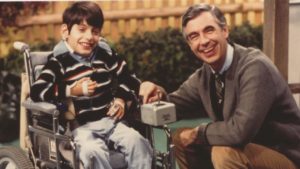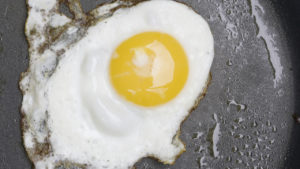“Where have all the good men gone?”
It’s a question most of us have either asked or been asked
at some point. As a leader in three different singles ministries spanning more
than a decade, I know I heard that inquiry more than once.
My purpose today isn’t to answer that question definitively,
one way or the other. I know there are godly, Christian women out there who
wrestle with this question — even as I can think of quite a few godly Christian
guys out there who are jumping up and down and shouting, “We’re right here.”
Still, I don’t think it’s a reach to say that there are
cultural forces at work that seem to be working against men. Once upon a time,
perhaps a generation or two ago, men’s roles in society and in relationships
were fairly well defined. These days, however, if you ask what it means to be a “good
man,” I suspect you might get blank stares from many people. There is something
of a crisis in masculine identity out there. Blend that with mixed messages about
what a man is supposed to do and be, and the result can be confusion and
passivity.
That observation is hardly revolutionary in Christian
circles. But this weekend I came across a similar assessment of the state of
men in another, perhaps unexpected context: young adult fiction. In her article
“YA Fiction and the End of Boys” (published in the Los Angeles Review of
Books), UCLA English professor Sarah Mesle argues that while there are plenty
of empowering young female role models out there these days, she doesn’t think
the same is true when it comes to men.
Mesle begins her article with a personal anecdote:
When I was pregnant the first time, I hoped I would have a
girl. I know, obviously, that it’s hard to be a girl … but it seemed that
parenting a girl, as a task, offered an appealing kind of clarity. You teach a
daughter to be a strong, brave woman. But what, I wondered, do you teach a son?
“Don’t get too full of yourself,” was about the best I could come up with.
She then moves into her premise, namely that things aren’t
going very well for men in contemporary YA fiction:
I remember that quandary every time I read an essay about
gender in Young Adult literature (which, since I teach it, is often). I see, in
the ongoing conversation about Bella and Katniss, our culture pondering whether
YA novels support the strong daughters we all want to raise. But as we debate
ad nauseam whether, for example, Bella Swan is a dangerous role model for young
women, we’ve neglected to ask the corresponding question: what does it tell
young men when Edward Cullen and Jacob Black are the role models available to
them? Are these barely-contained monsters really the best we can imagine?
The contemporary uncertainty towards young men snaps into
focus when we compare recent texts to their literary ancestors —
nineteenth-century novels for young readers. Hope Leslie, Jo’s Boys, Northwood, The Lamplighter: these novels
heralded the end of boyhood as a happy ending, the beginning of a triumphant
journey into a powerful manhood. But today’s YA boys approach their manhood
with trepidation. And they should. The adult men who populate YA fictional
worlds are often careless, corrupt, incompetent — sometimes even cruel — and
only rarely kind.
Why is it that in YA literature — a genre generated entirely
to describe the transition to adulthood — there is so much fear and ambivalence
surrounding manhood? When I read contemporary young adult novels, I see them
asking over and over again a fascinating question, a question both for boys and
for the stories describing them: Are there any good men? And how can a boy become
a good man, if he doesn’t know what that would mean?
Wow. That last question is worth chewing on: “How can a man
become a good man, if he doesn’t know what that would mean?”
Personally, I’m deeply grateful to have known some good men:
My father. The man who discipled me in the faith in college. And several other
good friends and mentors since then. These men have lived out, in front of me,
what it means to be a man. When I ding someone’s car in a parking lot with my
door, for example, I leave a note. Not because I’m especially virtuous, but
because that’s how my father taught me to live. He’s a man of honesty and
integrity, and I can readily see how his character has shaped my own.
But too often in our culture — and especially in our entertainment culture — men are not represented
as honest and full of integrity. Or willing to take responsibility for their
choices. Some of them can’t even make choices — they’re simply confused and
paralyzed. I’d suggest that the trend
Mesle observes here extends far beyond the pages of YA fiction and into many,
if not the majority of characterizations of men on TV and at the movies as
clueless, selfish, “lovable” dufuses, including (and sometimes especially)
dads.
Mesle concludes her article by saying, “I want to help my
sons imagine their manhood as essential to their best selves, not as a threat
to it. What I am hoping for is books that guide them as they learn to be inside
their manhood, rather than always on the outs.”
At the risk of sounding utterly cliché, those of
us who follow Christ have such a Book. And for those of us striving to be good men,
we would do well to cling to Scripture’s wisdom on that subject and ruthlessly
reject the lies our culture would have us swallow when it comes to the subject of
genuine, godly masculinity.











